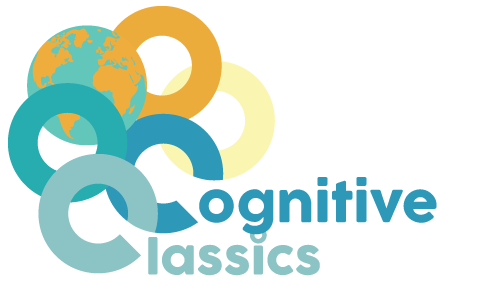The question of whether or not we have free will, long investigated by philosophers, has now become an important question in psychology. Here the focus is often less on whether or not we have free will, or agency (the capacity to act) but instead on what makes us feel like we have it, with ‘freedom’ typically treated as a scalar rather than an absolute.
Scientific discussions:
Libet, B. (1985). Unconscious cerebral initiative and the role of conscious will in voluntary action. Behavioral and Brain Sciences, 8, 529-539. http://selfpace.uconn.edu/class/ccs/Libet1985UcsCerebralInitiative.pdf (full text)
A highly controversial classic in the study of consciousness and agency, investigating the temporal relationships between brain activity, ‘conscious will’, and voluntary action: the neural readiness potential comes first, but a causal role for consciousness is preserved in the form of the ‘conscious veto’, or what the psychologist Richard Gregory later called ‘free won’t’.
Haggard, P. (2008). Human volition: Towards a neuroscience of will? Nature Reviews Neuroscience, 9, 934-946. http://thebrainandthemind.co.uk/Build/Assets/readings/Human%20Volition%20Patrick%20Haggard.pdf (full text)
The neuroscience of voluntary action (whether to act, what action to perform, and when to perform it) speaks both to the neural correlates and the distinctive conscious experience of intending and controlling one’s own actions, and so can inform philosophical debates about individual responsibility.
Schnauder, L. (2009). Free will and determinism: A philosophical introduction. In L. Schnauder, Free will and determinism in Joseph Conrad’s major novels (pp. 9-41). Amsterdam: Editions Rodopi. https://books.google.co.uk/books?isbn=9042026162 (preview of all but two pages)
A detailed introduction to the history and current state of philosophical thought about free will, including the key theories (libertarianism, hard determinism, and soft determinism), and the arguments for and against determinism and indeterminism. (The rest of the book applies these ideas in analyses of Conrad’s texts, but without the kind of philosophical detail presented in the introduction.)
Wegner, D. (2003). The mind’s best trick: How we experience conscious will. Trends in Cognitive Sciences, 7(2), 65-69. http://scholar.harvard.edu/dwegner/publications/minds-best-trick-how-we-experience-conscious-will (full text)
Dismisses the idea that a feeling of consciously willing our actions means that they are indeed caused be consciousness, and proposes that this feeling be understood instead as resulting from the mind’s inferences about likely causality – which are guided by the principles of consistency, priority, and exclusivity in the relation of thought to action.
Tsakiris, M., Schütz-Bosbach, S., and Gallagher, S. (2007). On agency and body-ownership: Phenomenological and neurocognitive reflections. Consciousness and Cognition, 16, 645-660. http://www.pc.rhul.ac.uk/sites/lab/wp-content/uploads/2011/12/Tsakiris-Schutz-Bosbach-Gallagher-CC_2007.pdf (full text)
Discusses how the sense of agency affects that of body-ownership, and suggests that both depend on the integration of efferent and afferent information in action contexts – the former determining the content of bodily experience and the latter its structure.
Olson, J. A., Landy, M., Appourchaux, K., and Raz, A. (2016). Simulated thought insertion: Influencing the sense of agency through deception and magic. Consciousness and Cognition, 43: 11-26. http://razlab.mcgill.ca/docs/thought_insertion.pdf (full text)
Describes experiments in which participants are told that a neuroimaging machine can either read or influence their thoughts, and report feeling less voluntary control over their decisions, as well as making slower decisions, in the mind-influencing condition.
Cognitive humanities discussions:
Newton, K. M. (2012). George Eliot, Kant, and free will. Philosophy and Literature, 36(2), 441-456. https://muse.jhu.edu/article/497892/summary (paywall)
Discusses the conflict between Eliot’s determinism and her moral judgements of her fictional characters, and reflects on her conclusion that free will is a necessary fiction. The paper draws on Kant and Bergson in outlining a version of free will linked to rationality, personality, and self.
White, H. (2014). ‘Insanity without insanity’: Epilepsy and the absence of free will in Dostoyevsky’s novels. Toronto Slavic Quarterly, 48, 230-268. http://sites.utoronto.ca/tsq/48/tsq48_white.pdf (full text)
Dostoyevsky suffered from what would now be called temporal lobe epilepsy. This article argues that his treatment of the epileptic personality (in texts like Notes from the Underground and The Brothers Karamazov) offers a way to understand his conceptions of will and agency, including five main categories that were of concern to Dostoyevsky: free will, individual liberty, freedom of conscience, randomness and indeterminism, and freedom of action. The paper treats questions of society and religion in their connection to free will and moral action.
Evans, David H. (2012). ‘The chains of not choosing’: Free will and faith in William James and David Foster Wallace. In M. Boswell and S. J. Burn (Eds), A companion to David Foster Wallace studies (pp. 171-190). New York: Palgrave Macmillan. http://link.springer.com/chapter/10.1057/9781137078346_9 (paywall)
Draws on Foster Wallace’s fondness for William James to illuminate the connections between ideas of choice and (in)action expressed by the two writers (with particular reference to the novel Infinite Jest), as well as their respective attitudes to religious belief.
